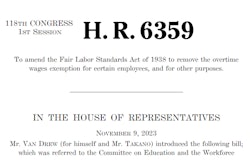My family’s roots in the transportation industry run deep, and I drove for a few years running freight on the Eastern side of the country. I currently work for a manufacturer as a yard jockey, as I found little joy running over-the-road. The manufacturing company I work for uses one of the big multimodal freight haulers to ship a large majority of their goods, which is done utilizing a drop-and-hook yard.
While I was at work I was called via radio and asked if I could assist a driver whose trailer was dropped too low. While rare for our lot, it certainly is not impossible, and I agreed. I met with the driver, got the trailer number, and proceeded into the yard where I discovered the trailer sitting so low I barely managed to get under it with the yard truck. I knew it had not been originally dropped that low, as I was the one who dropped it there earlier in my shift. I got it lifted back up, discovering the landing gear was in high gear, and quickly concluded the driver was actually lowering the trailer instead of raising it as they had thought.
I pulled out and told the driver I would wait in case there were any other problems. With well more than 150 feet of empty parking lot in front of the trailer, it still took six attempts before this driver was able to line up with their trailer. I then knew immediately it was too high, as I could easily see light between the truck frame and trailer. After he made four more attempts to back under it, I stopped the driver and explained the trailer was too high, to which they exclaimed, “Is that why it won’t go?”
I guided them back and lowered the trailer onto the fifth wheel, and they proceeded to back under and complete the hook-up. To the driver’s credit, they did perform a proper pull test to ensure it was locked properly before climbing down.
[Related: Sliding trailer tandems sticking? Pack wheel chocks in the side box (or elsewhere)]
As the driver struggled with the glad hands, I politely asked if they knew that the landing gear had two separate gear modes. The answer: No.
The driver then asked my opinion on whether the glad hand would be “OK like that.” I discovered the glad hand for the service line not even halfway to being coupled together properly. I said it would not, while trying to politely cover my shock and disappointment that it was even considered possibly “OK” by the driver, and coupled them properly. I demonstrated the two gears within the landing gear, assured of understanding by the driver with an overwhelming amount of thanks, before being called away to continue my work responsibilities.
The driver was beyond polite, respectful and professional. But: It was also beyond obvious that their training as a truck driver was incredibly lacking. I felt so sorry for what their company has done to them. Basic knowledge was completely unknown such that I have no doubt in my mind they would have had no idea what to do if/when the service line came uncoupled, discovered halfway down an Appalachian mountain, no trailer brakes on their fully loaded trailer.
Or: Tear a back muscle trying to raise a fully loaded trailer with the dolly in high gear.
But: They could drive in a straight line, and it seems that is all that is required for these big companies to hand out CDLs and make people “professionals” in their industry. Again, I stress that this person was incredibly polite, and listened intently to the little bit of teaching I was able to provide, proving, to me at least, they were interested in learning.
But that teaching, it seems, is no longer provided. Has “hold the steering wheel and hang on” become the standard procedure for operating these vehicles? If so, it’s appalling. Regardless of whether or not they got their CDL via an independent, third-party school or through a program provided by their employer, this driver was severely unprepared to take the wheel as a “professional.”
The only thing I can do is pray for them and hope they never have to pay the price for their company’s shortcomings.
[Related: 'Not really what we need': Training regs may miss the mark, but some are doing it right]










